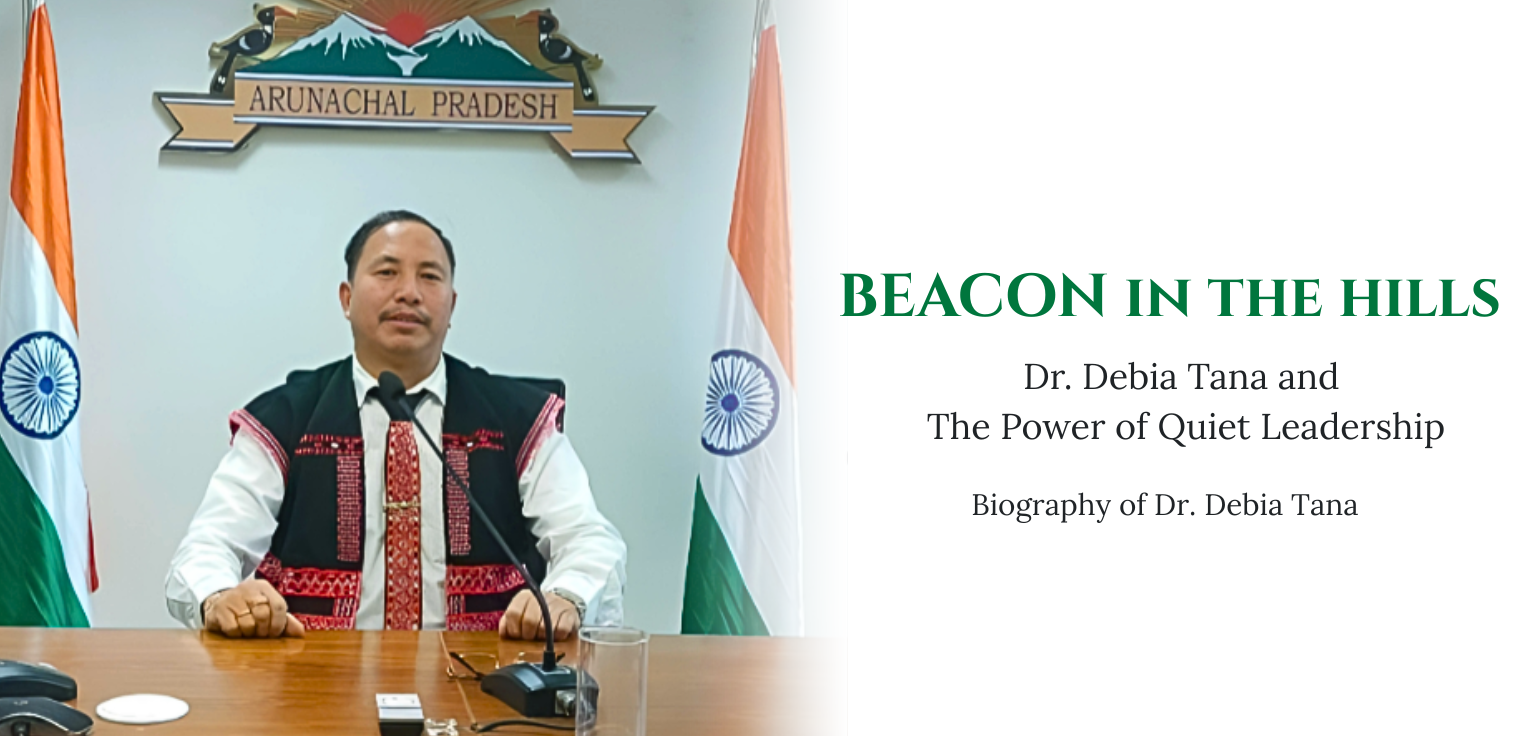
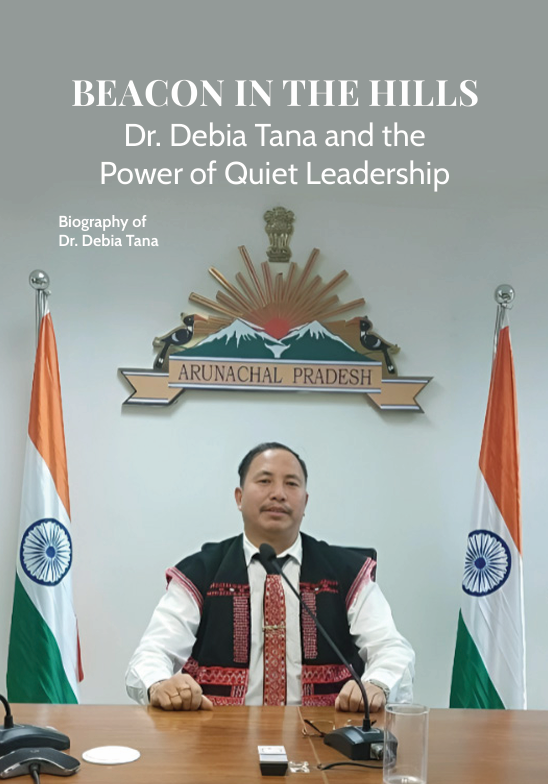
"It’s always something, to know you’ve done the most you could. But don’t leave off hoping, or it’s of no use doing anything. Hope, hope to the last.”
Introduction
“Leadership is not about recognition. It is about responsibility.”
In a remote corner of India’s vibrant northeast lies Arunachal Pradesh—a land of rich tribal heritage, pristine mountains, and people whose lives are deeply interwoven with the values of community and resilience. Among them walks a man whose story embodies silent strength, consistent service, and unwavering dedication to both law and humanity. His name is Dr. Debia Tana—a government officer, a social reformer, a ministry leader, and above all, a son of the soil.
Dr. Tana’s journey is not scripted in boardrooms or forged in political ambition. It is the life of a man who has chosen to serve where service is hardest—among the grassroots. For years, he has stood at the junction of governance and compassion, making critical decisions not from behind a desk, but with his feet firmly planted in the lives of everyday citizens. His is a leadership built not on volume, but on values.
In an age where titles often speak louder than actions, Dr. Tana offers a rare example of humility fused with fierce purpose. From his role in the Department of Legal Metrology and Consumer Affairs to his tireless efforts across multiple NGOs, he has consistently anchored his work in service—ensuring justice for the voiceless and opportunity for the underserved.
But it is not just his position that defines him. It is his perseverance. It is the vision of a young student leader from Itanagar who refused to be bound by circumstance. It is the voice of a grassroots politician who left politics to build impact from within the government. It is the conviction of a servant-leader who now pursues a law degree—not for prestige, but to offer free legal aid to those who cannot afford it.
Whether as Assistant Controller and District Consumer Protection Officer, President of the Haggai Institute Alumni Association of Arunachal Pradesh (H.I.A.A.A.P.), Vice President of the Tara Aabh Multipurpose Welfare Society, or Secretary of the Uku Una Welfare Society, Dr. Tana has embodied leadership that uplifts others. He is not a man of singular roles but of many missions—each aligned toward justice, growth, and transformation.
Those who meet him are often struck by his grounded presence. He listens more than he speaks. When he does speak, it is with clarity and conviction, shaped by years of learning from elders, walking alongside villagers, and working with grassroots institutions. When he plays a game of volleyball or encourages youth through his goal-setting workshops, he isn’t just participating—he is modeling a life of balance, discipline, and purpose.
He has been honored with awards from the Nyishi Elite Society (N.E.S.), NFC, N.I.I.S., NEHRDO, Friendship Forum, NBCC, and a prestigious national recognition for grassroots leadership—each a testament not just to performance, but to principle. Yet for Dr. Tana, these accolades are never the destination. They are a reminder—to do more, to go further, and to serve with deeper integrity.
This biography does not simply document his professional milestones. It is a story of transformation—of a boy from Radhpu Village who became a beacon for ethical governance and inclusive development. It is about a father who raised successful children and still dreams of creating better systems for future generations. It is the story of a believer, a doer, a mentor—one whose journey is still in motion.
In these pages, you will walk through the phases of his life—from his humble beginnings to his emergence as a youth leader, from the corridors of bureaucracy to the prayer halls of international ministries. You will learn how he stitched together law, compassion, and leadership into a life of meaning. You will see how service, when fueled by vision, becomes not a burden—but a blessing.
Let this be more than a biography. Let it be an invitation—for young leaders who seek purpose over popularity, for civil servants who choose people over paperwork, and for anyone who believes that leadership is not about how high you climb, but how many you lift.
This is the story of Dr. Debia Tana.
And it is only just beginning.
PHASE 1: Humble Beginnings
“Greatness begins not in grandeur, but in grounding.”
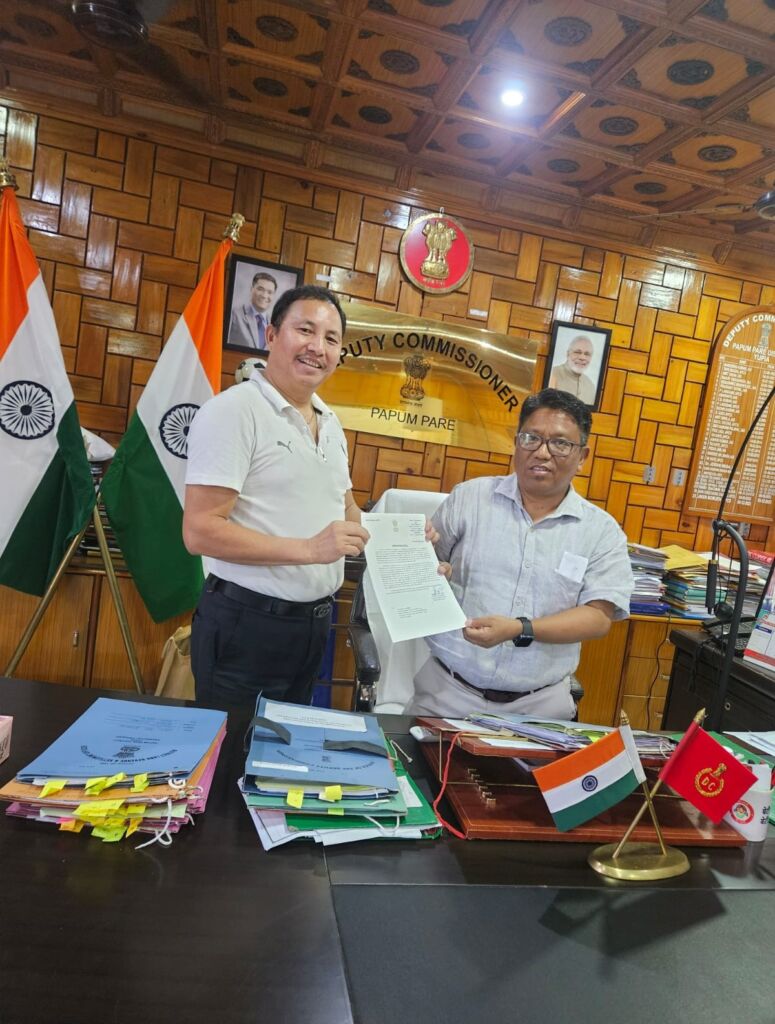
Long before he became a recognized government officer or a leader among communities, Dr. Debia Tana was simply a village boy with a deep sense of responsibility and a growing hunger to serve. His journey, unlike those born of privilege or influence, began in the quiet hamlet of Radhpu Village in Arunachal Pradesh—where leadership was not a position, but a practice passed down through generations.
Born into a family that modeled dignity and community leadership, Dr. Debia Tana grew up watching his father, Shri Debia Tado, fulfill his duties as the Head Gaon Burah (village chief). His father’s leadership wasn’t about loud speeches or official designations—it was about resolving disputes, guiding with wisdom, and leading with empathy. His mother, Smt. Debia Eya, was equally impactful—a nurturing presence who instilled in him discipline, compassion, and a reverence for knowledge.
From his earliest days, Debia Tana stood out—not because he sought attention, but because he naturally leaned toward responsibility. Whether it was helping mediate conflicts among friends or organizing small school events, he had a knack for leadership that came from listening, planning, and delivering. His schooling days were marked by a quiet ambition. While his peers chased momentary recognition, Debia was already thinking beyond—about how to one day contribute to the welfare of his people.
Despite the limited resources available in his village, he never allowed hardship to deter his vision. In fact, adversity became his fuel. He excelled in his early academics and eventually pursued higher education at Government Dera Natung College, Itanagar—a significant leap from the rural confines of his upbringing. But even as he entered a more structured academic environment, his identity as a servant-leader never wavered.
In college, Debia quickly earned respect not just for his intellect, but for his integrity. He was elected to student leadership roles—positions that required managing conflicts, collaborating with faculty, and ensuring the student body’s voice was heard. These were not symbolic posts; they were real platforms that tested his ability to represent, resolve, and reform. And Debia rose to each challenge with the same grounded grace he had inherited from his father.
But leadership wasn’t his only pursuit. In the background of these activities, a deeper calling was taking root—the desire to one day become a public servant. Not just to hold office, but to hold space for the marginalized. Even then, Debia spoke of systems—how to improve grievance redressal, how to make governance more inclusive, and how to ensure that the power of the law reached the last mile.
That clarity of purpose was rare in a teenager, yet Debia Tana embodied it. After graduating, he became more actively involved in political youth wings, eventually serving as the State General Secretary for the Congress Seva Dal. It was a role that came with recognition and influence, but also with frustration. He soon realized that party politics, while valuable in advocacy, often lacked the institutional framework to drive long-term change.
PHASE 2: Awakening Through Leadership
“Leaders are not born in power. They are born in purpose.”
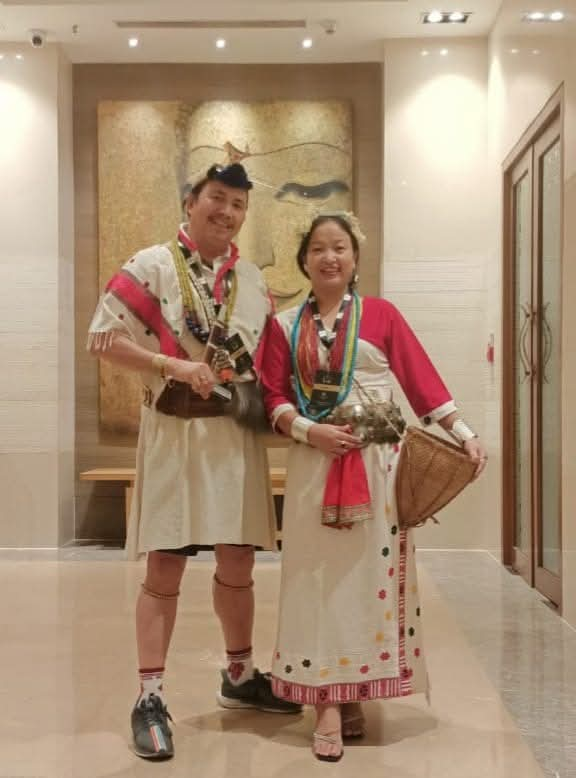
While many view leadership as a culmination of credentials or conferred titles, for Dr. Debia Tana, it was something far more organic. Leadership, to him, was not a position—it was a way of life. It awakened in him not in the halls of bureaucracy, but in the schoolyards of his childhood, the student unions of college, and the dynamic frontlines of youth politics. It was forged through action, affirmed through reflection, and matured through service.
From an early age, Debia displayed an unusual ability to gather people, listen deeply, and mobilize consensus. During his school days, he naturally emerged as a coordinator among classmates—not out of ambition, but out of instinct. He helped settle disputes, organized events, and often acted as a bridge between students and teachers. While others sought validation, Debia offered solutions. He was trusted because he was consistent.
That trust followed him into college, where his environment expanded, and his influence deepened. At Government Degree College, Itanagar, Debia didn’t merely attend classes—he immersed himself in student governance. It was here that his leadership philosophy began to crystallize. He understood that being a leader wasn’t about being popular; it was about being accountable. Whether it was addressing a student grievance, facilitating a debate, or ensuring fair representation in decision-making, Debia was not just involved—he was impactful.
His time in college also marked the beginning of his deeper political consciousness. As he observed the intersection of policy and public need, he recognized both the potential and the pitfalls of formal politics. Inspired to make a difference, he joined the Indian National Congress and rose swiftly through its youth ranks, eventually becoming the State General Secretary of the Congress Seva Dal. This position wasn’t symbolic—it was earned through years of ground-level engagement, unwavering discipline, and a vision for youth empowerment.
In this role, Debia worked directly with senior political leaders, organized training camps, led youth awareness drives, and often represented his state in broader national forums. But even as he gained recognition, he also grew disillusioned. The system, he realized, often prioritized short-term optics over long-term change. Decisions were frequently driven by political calculus rather than the needs of the people. The very structure he had hoped to reform was constrained by inertia and bureaucracy.
This led him to a critical moment of introspection. With a clarity rare for someone so young, Debia made the decision to leave active politics—not in defeat, but in pursuit of more direct service. He understood that titles can command attention, but systems change through sustained, structured work. And so, he shifted his path from political activism to public administration.
This choice was not easy. Leaving the political limelight meant walking away from potential power. But Debia saw something deeper—a calling to build institutions rather than just critique them. He began preparing for competitive public service exams with singular focus. In these months, leadership took on a new form: waking early, studying late, and learning the intricate laws and acts that govern society. Leadership was now about self-discipline, sacrifice, and the long game.
When he finally cracked the exam and was appointed as an Inspector in the Department of Legal Metrology and Consumer Affairs, it wasn’t a reward—it was a responsibility—a new platform from which to serve. This was where leadership evolved into stewardship.
In his early days as a government officer, Dr. Tana’s fieldwork taught him realities no textbook could explain. He saw firsthand how unregulated markets could exploit vulnerable consumers. He witnessed the frustration of traders caught between compliance and confusion. And he experienced the delicate balance between enforcement and education. With each case he handled and each inspection he conducted, Debia deepened his understanding of justice—not as a theory, but as a practice.
PHASE 3: Serving Through Government
“The role of a true public servant is not to occupy power, but to distribute justice.”
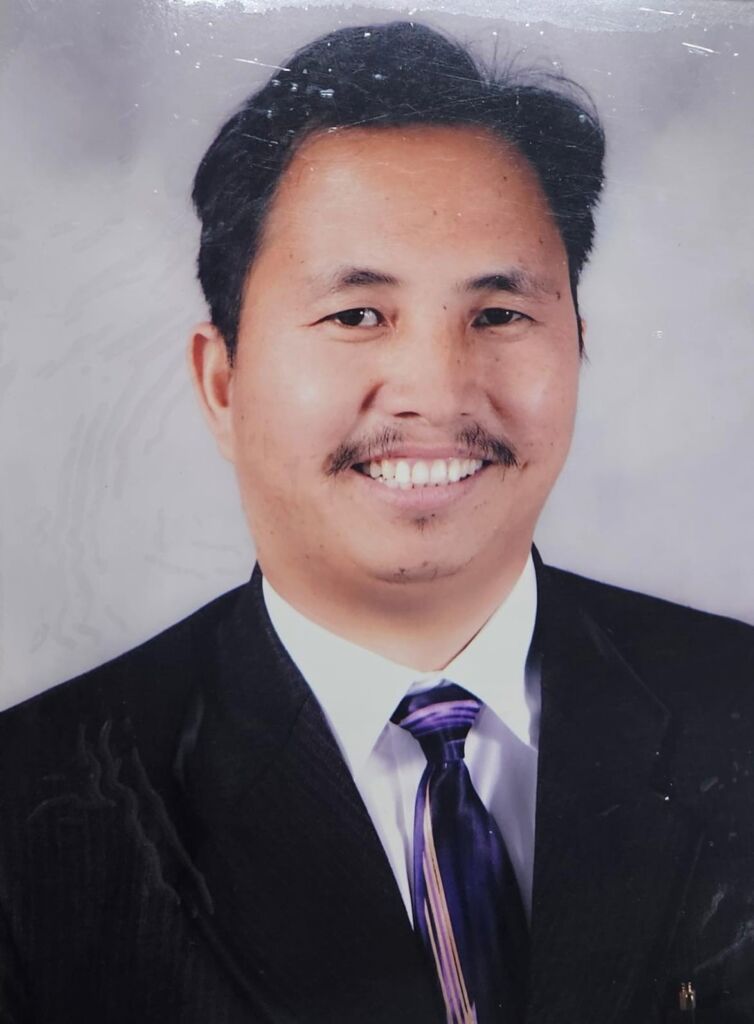
By the time Dr. Debia Tana took up his formal role in the Arunachal Pradesh government, he was no longer a rising leader—he was a refined one. The foundations built in his youth, the awakenings from his political journey, and the discipline of his academic life had prepared him for a new chapter: one that demanded precision, policy knowledge, and relentless public engagement. Government service, for many, is a career. For Dr. Tana, it was a mission.
Appointed as an Inspector in the Department of Legal Metrology and Consumer Affairs, and later elevated to Assistant Controller cum District Consumer Protection Officer, Dr. Tana entered the bureaucratic system not as an administrator behind a desk, but as an advocate on the ground. From day one, he made it clear: his office would not be an ivory tower—it would be an instrument of justice for those who felt powerless.
His responsibilities were expansive. As a key regulator of weights and measures in trade and commerce, his job was to ensure that every transaction in his district upheld fairness and legality. It meant inspecting shops and markets, responding to consumer complaints, enforcing compliance, and resolving disputes through the District Consumer Disputes Redressal Commission. But Dr. Tana brought more than just technical oversight to the role—he brought heart.
He believed that the law should be understood before it is feared. So, he began educating both consumers and traders. He would organize awareness drives, conduct training sessions for shopkeepers, and publish simplified guides about consumer rights. In his view, informed citizens made for a just society. Traders, who were once wary of inspections, came to respect him for his balanced approach—never compromising on integrity, yet never blind to practical realities.
One of his early breakthroughs came when he handled a complex case involving large-scale overcharging and manipulation of electronic weighing systems in rural marketplaces. While others may have issued fines and moved on, Dr. Tana pursued systemic reform. He not only penalized the offenders but initiated workshops across multiple districts to raise awareness about the manipulation of metrology equipment. This not only curbed malpractice but also empowered consumers to recognize when they were being cheated.